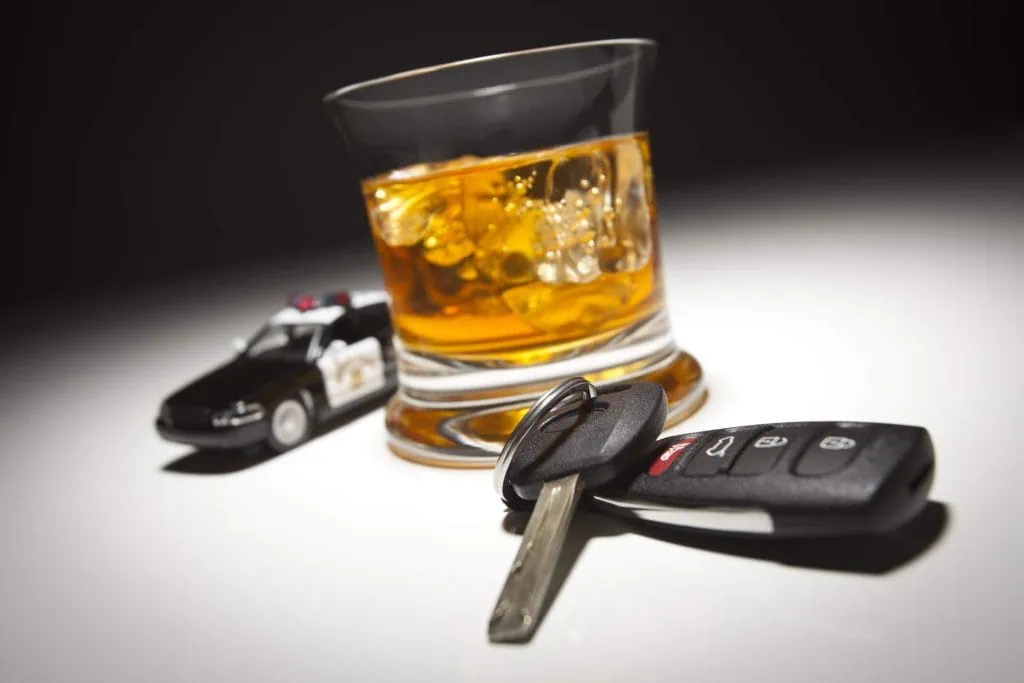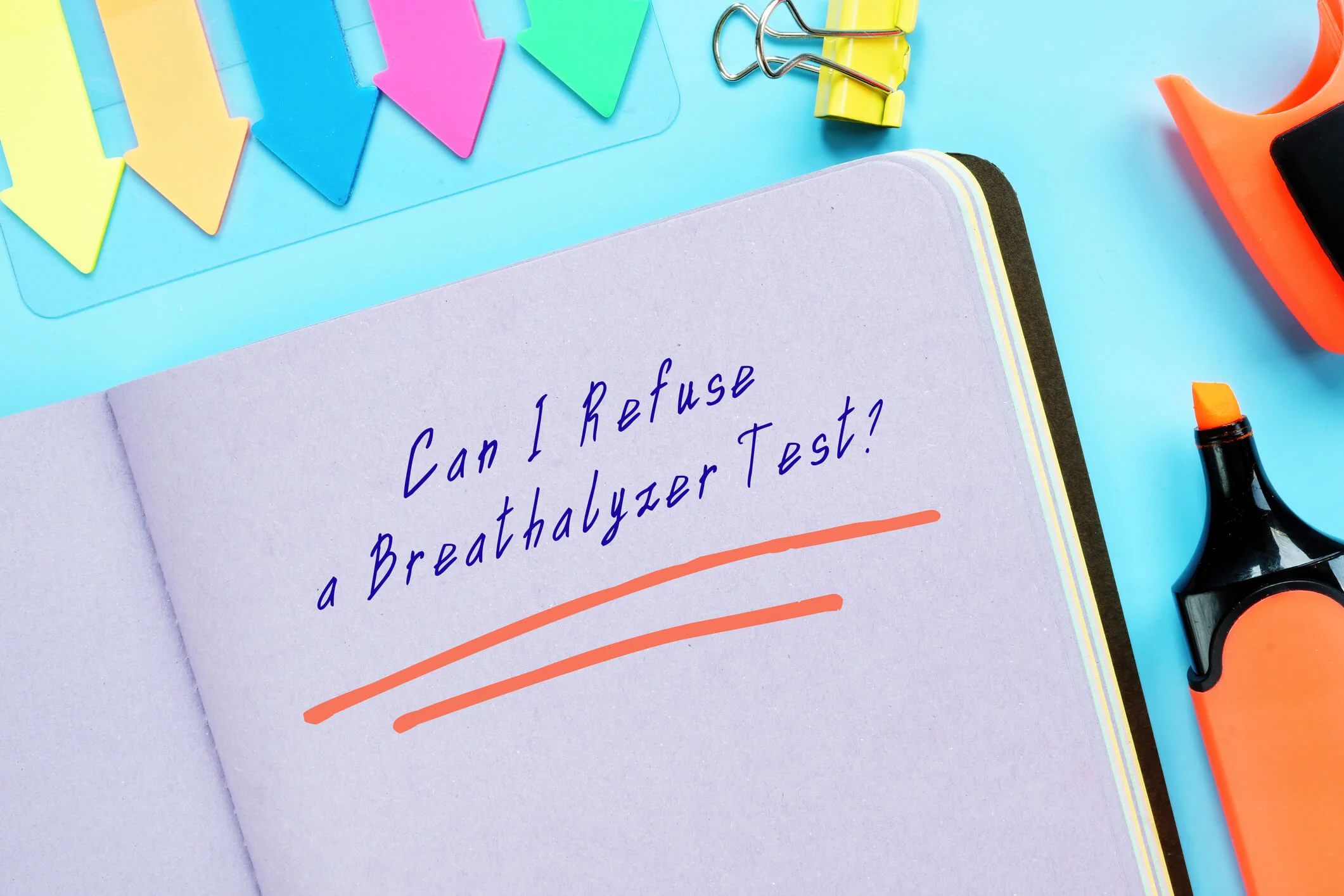Driving under the influence is a serious charge in any state. Still, a first-offense DUI in North Carolina comes with specific laws, penalties, and legal processes that every driver should understand. The circumstances of each case—including the amount of alcohol involved, whether drug use was a factor, and the potential for a jail sentence—can influence outcomes significantly. At Constantinou & Burkert Accident Injury Lawyers, we’re committed to helping clients protect their rights and minimize the consequences of a DUI or DWI conviction, including those involving DWI sentencing. There is no universal template; anyone facing these charges must understand the legal limit, available defenses, and the additional steps required in building a case. This guide outlines the legal landscape for offenders facing a first-time offense, especially in cities such as Durham, where strict enforcement and procedural addition can complicate the legal process.
Legal Definition and Classification of DUI in North Carolina
Under NC law, a DUI offense (or DWI charge) occurs when a driver operates a motor vehicle while impaired by alcohol, drugs, or a combination of both. Impairment can be demonstrated by a blood alcohol concentration (BAC) of 0.08% or higher, confirmed through a breathalyzer test, blood test, or officer observation. The way the law is applied depends on the specific facts of each situation and how well attorneys understand both local DUI laws and broader DWI laws.
A first offense is typically classified as a misdemeanor. However, it can be elevated depending on several factors, including the level of impairment, whether the offense involved an accident, a traffic violation, or if there were minor passengers involved. The age of the driver and other involved people may also influence the case.
The system for handling these DWI cases is structured to assess risk, enforce penalties, and promote treatment and rehabilitation when necessary. If you have legal questions, it’s crucial to consult a qualified attorney who understands every aspect of the law and can effectively protect your rights.
Blood Alcohol Levels and Impairment Thresholds
In DUI-related cases, blood alcohol content plays a critical role. The state considers not only the BAC level but also additional behaviors like reckless driving, refusal to comply with testing, or possession of illegal drugs. The levels of punishment are scaled accordingly:
BAC of 0.08%–0.14%: Baseline for impairment
BAC of 0.15% or above: Triggers enhanced sentencing
Drivers under 21: Zero-tolerance policy—any detectable alcohol is a violation
Suppose a person refuses to take a breathalyzer test or a blood test. In such cases, the penalty often includes an immediate license suspension issued by the NCDMV, and the condition for reinstating driving privileges may depend on completing a substance abuse assessment or a related program. In the following stages of the case, additional assistance from a defense attorney can help manage DWI charges effectively and reduce the long-term consequences of a DWI offense.
Arrest Process and Initial Legal Procedures
Once a driver is pulled over and suspected of impairment, an officer may request that the driver undergo field sobriety tests or a chemical test. If probable cause exists, an arrest follows. The driver’s license can be suspended immediately under the NCDMV’s civil revocation policy. Depending on the statute, this type of crime may carry a minimum suspension period and other strict enforcement conditions.
During the initial court appearance, the judge will review evidence, including test results, witness statements, and any prior driving record violations. Legal representation is critical at this stage to challenge the validity of testing methods or procedural errors and to ensure a fair process.
Working with a criminal defense lawyer or a seasoned DUI attorney—especially one skilled in DWI defense lawyers—can provide valuable insight into the best ways to proceed. An experienced attorney can engage with the prosecutor, evaluate the legal sense of pursuing a plea or trial, and identify potential weaknesses in the state’s case. Useful links between evidence, legal arguments, and precedents can shape the direction of your defense and significantly influence the outcome.
Sentencing Guidelines and Levels of Punishment
North Carolina uses a structured sentencing grid for DWI convictions. There are five levels, with Level 5 being the least severe and Level 1A the most severe:
Level 5: Fine up to $200, 24 hours to 60 days in jail
Level 4: Fine up to $500, 48 hours to 120 days in jail
Level 3: Fine up to $1,000, 72 hours to 6 months in jail
Level 2: Fine up to $2,000, 7 days to 1 year in jail
Level 1 / 1A: Fine up to $4,000–$10,000, 30 days to 2 years in jail
Sentences may include probation, community service, substance abuse assessment, treatment, or an ignition interlock device, depending on the severity of the offense and whether the case involves additional crimes, such as driving on a suspended license or a related ticket. In some cases, the court may impose the maximum sentence allowed under law to reflect the seriousness of the violation.
Each case is unique. The judge evaluates mitigating factors, such as cooperation, a clean prior record, or voluntary enrollment in education or treatment programs. The ultimate goal, whether you’re facing a minor offense or more complex DWI charges, is to ensure that justice is served while respecting due process and legal rights. At Constantinou & Burkert Accident Injury Lawyers, our logo serves as a symbol of trusted and experienced representation in the face of challenging legal matters.
Factors Affecting DUI Sentencing
The severity of a sentence for a first offense depends on several factors, including:
Prior to driving record
The presence of a minor or child in the car
Property damage or personal injury caused
Extremely high BAC
Voluntary alcohol assessment and participation in treatment
Mitigating factors, such as a clean driving history or enrollment in educational programs, can reduce your sentence. Aggravating factors may result in a harsher outcome.
Driving Privileges and License Suspension
One of the most immediate and impactful penalties is the suspension of one’s license. Even a first-time offense often triggers a 30-day civil suspension of your driver’s license before your trial even occurs. After a conviction, the license may be suspended for up to 12 months.
A limited driving privilege can sometimes be obtained for work, school, or medical purposes. This requires filing with the court, paying fees, and installing an ignition interlock device.
Community Service, Fines, and Additional Penalties
Instead of jail time, the court may assign community service. The number of hours depends on the level of the offense and the judge’s discretion.
Other common penalties include:
Fines (ranging from a few hundred to thousands of dollars)
Court costs
Required consultation with a defense attorney
Mandatory treatment or education programs
Insurance surcharges and license revocation
Additional consequences may affect employment, professional licensing, and background checks.
Understanding the Broader Consequences
A conviction affects more than just your immediate future. It leaves a record, influences professional and personal relationships, and can impact life goals. Insurance premiums skyrocket, and some may lose jobs that require a clean driving record.
Families also face stress. When someone is arrested, partners and children often share in the emotional and financial burden.
Your ability to travel internationally or qualify for specific employment opportunities may be limited. In some cases, repeat offenses can turn into felony charges.
The Role of an Experienced DUI Attorney
Whether you’re facing DUI charges in Durham, or any other part of North Carolina, working with a skilled DUI lawyer can significantly impact the outcome of your case. A qualified attorney will help:
Analyze test methods and evidence
Address impairment or consent issues
Negotiate for a reduced sentence or alternative treatment
Handle communication with prosecutors and court officials
Explain legal options, rights, and the potential impact of each strategy
At Constantinou & Burkert, our firm brings years of experience in handling DWI law. We’ve helped hundreds of clients reduce their charges, avoid jail time, and preserve their driving privileges.
Traffic Law Defense Strategies
A strong defense begins with understanding how to challenge the system. Possible strategies include:
Contesting the legality of the stop
Demonstrating testing errors or method flaws
Presenting evidence of non-impairment
Arguing discretion or burden of proof failures
Highlighting improper procedures or violations of attorney-client relationship norms
Each case requires a unique approach. The details, facts, and personal history matter immensely.
Legal Support for First Offense DUI Cases in North Carolina

Legal guidance for a first DUI offense in North Carolina presented by Constantinou & Burkert Accident Injury Lawyers serving Durham NC
We believe that one mistake should not define your life. If you’re facing a first offense, our team will guide you through:
Filing the correct contact form
Building a defense based on information and facts
Protecting your license, job, and future
Pursuing a resolution that avoids permanent conviction
We are well-versed traffic defense lawyers in Durham. Our office takes pride in creating tailored legal strategies with compassion and clarity.
Taking Action Now
The most important thing to do after a DUI arrest is to act quickly. Evidence degrades, deadlines pass, and opportunities are lost when you wait—especially if your case could potentially result in a jail sentence. Please call our office, complete our contact form, or visit us in person.
Phone consultations are available. Our team is ready to listen, strategize, and assist you in navigating this legal challenge.
FAQs for First Offense DUI in North Carolina
Will a first DUI conviction stay on my criminal record forever in North Carolina?
Yes, under current North Carolina DUI laws, a first-time conviction for DUI cannot be expunged. It will remain on your criminal record permanently, which can affect your employment, housing, and professional licensing opportunities.
Can I drive to work after a DUI arrest before my court date?
After the initial civil license suspension, you may be eligible for a limited driving privilege—but only under specific conditions and with court approval.
What are the costs involved in resolving a DUI case?
Beyond fines, you should budget for court costs, attorney fees, substance abuse assessments, ignition interlock devices, and increased insurance premiums—often totaling several thousand dollars.
Is jail time mandatory for a first-time DUI in North Carolina?
Not always. While sentencing levels may include a jail sentence, courts often allow community service or probation instead, especially for Level 5 and Level 4 offenses.
How does refusing a breathalyzer test affect my case?
Refusal triggers an automatic license suspension (typically 12 months), and the refusal itself can be used as evidence against you in court—even if you’re acquitted of DUI.
Can I represent myself in a DUI case?
Legally, yes—but it’s strongly discouraged. The DUI process is complex, and hiring an experienced DWI lawyer significantly increases your chances of a better outcome.
Does North Carolina have a zero-tolerance policy for specific drivers?
Yes. Drivers under 21 face immediate penalties for any measurable blood alcohol content (BAC), regardless of whether they’re impaired under adult legal limits.
Will I need to install an ignition interlock device after a first DUI?
It depends on your BAC level. A reading of 0.15% or higher typically triggers a mandatory ignition interlock device, even for a first offense.
Can a DUI conviction impact my ability to rent a car or travel abroad?
Yes. A DUI on your record may lead to rental car refusals, and countries like Canada may deny entry to individuals with a DWI conviction.
How long will my driver’s license be suspended for a first DUI?
A conviction can result in a 12-month suspension, but with proper legal steps, you may be eligible for conditional reinstatement or a limited driving privilege after 30 days.


